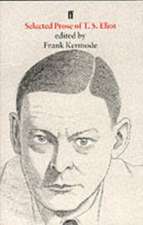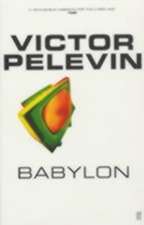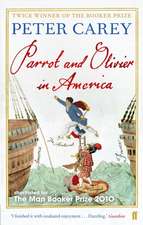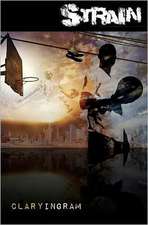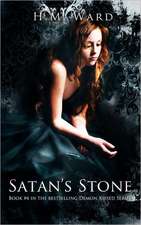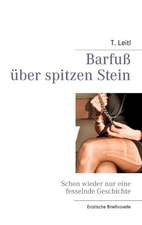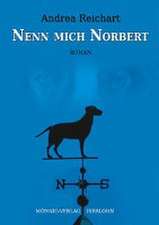Theft
Autor Peter Careyen Limba Engleză Paperback – 30 apr 2007
| Toate formatele și edițiile | Preț | Express |
|---|---|---|
| Paperback (2) | 70.01 lei 3-5 săpt. | +10.59 lei 4-10 zile |
| FABER & FABER – 6 iun 2007 | 70.01 lei 3-5 săpt. | +10.59 lei 4-10 zile |
| Vintage Books USA – 30 apr 2007 | 104.25 lei 6-8 săpt. |
Preț: 104.25 lei
Nou
Puncte Express: 156
Preț estimativ în valută:
19.95€ • 20.61$ • 16.60£
19.95€ • 20.61$ • 16.60£
Carte tipărită la comandă
Livrare economică 25 martie-08 aprilie
Preluare comenzi: 021 569.72.76
Specificații
ISBN-13: 9780307276483
ISBN-10: 0307276481
Pagini: 269
Dimensiuni: 135 x 203 x 21 mm
Greutate: 0.29 kg
Editura: Vintage Books USA
Colecția Potter Style
ISBN-10: 0307276481
Pagini: 269
Dimensiuni: 135 x 203 x 21 mm
Greutate: 0.29 kg
Editura: Vintage Books USA
Colecția Potter Style
Notă biografică
Peter Carey is the author of nine novels, including the Booker Prize-winning Oscar and Lucinda and True History of the Kelly Gang. Born in Australia in 1943, he now lives in New York City.
Extras
I don't know if my story is grand enough to be a tragedy, although a lot of shitty stuff did happen. It is certainly a love story but that did not begin until midway through the shitty stuff, by which time I had not only lost my eight-year-old son, but also my house and studio in Sydney where I had once been about as famous as a painter could expect in his own backyard. It was the year I should have got the Order of Australia--why not!--look at who they give them to. Instead my child was stolen from me and I was eviscerated by divorce lawyers and gaoled for attempting to retrieve my own best work which had been declared Marital Assets.
Emerging from Long Bay Prison in the bleak spring of 1980, I learned I was to be rushed immediately to northern New South Wales where, although I would have almost no money to spend on myself, it was thought that I might, if I could only cut down on my drinking, afford to paint small works and care for Hugh, my damaged two-hundred-and-twenty-pound brother.
My lawyers, dealers, collectors had all come together to save me. They were so kind, so generous. I could hardly admit that I was fucking sick of caring for Hugh, that I didn't want to leave Sydney or cut down on drinking. Lacking the character to tell the truth I permitted myself to set off on the road they had chosen for me. Two hundred miles north of Sydney, at Taree, I began to cough blood into a motel basin. Thank Christ, I thought, they can't make me do it now.
But it was only pneumonia and I did not die after all.
It was my biggest collector, Jean-Paul Milan, who had designed the plan wherein I would be the unpaid caretaker of a country property he had been trying to sell for eighteen months. Jean-Paul was the proprietor of a chain of nursing homes which were later investigated by the Health Commission, but he also liked to paint and his architect had made him a studio whose riverside wall opened like a lube-bay door. The natural light, as he had so sweetly warned me, even as he made his gift, was perhaps a little green, a "fault" produced by the ancient casuarinas that lined the river. I might have told him that this issue of natural light was bullshit, but again I held my tongue. That first night out of gaol, at a miserably wine-free dinner with Jean-Paul and his wife, I agreed that we had tragically turned our backs on natural light, candlelight, starlight, and it was true that the Kabuki had been superior in candlelight and that the paintings of Manet were best seen by light of a dusty window, but fuck it--my work would live or die in galleries and I needed 240 reliable volts of alternating current to do my stuff. I was now destined to live in a "paradise" where I could be sure of no such thing.
Jean-Paul, having so generously given us his house, began immediately to fret that I might somehow hurt it. Or perhaps the true alarmist was his wife who had, long ago, caught me blowing my snotty nose into her dinner napkin. In any case, it was only six mornings after we first arrived in Bellingen that Jean-Paul burst into the house and woke me. This was a nasty shock at almost every level, but I held my tongue and made him coffee. Then for two hours I followed him around the property as if I were his dog and every stupid thing he told me I wrote down in my notebook, an old leather-bound volume that was as precious to me as life itself. Here I had recorded every colour mix I had made from the time of my so-called breakthrough show in 1971. It was a treasure house, a diary, a record of decline and fall, a history. Thistles, said Jean-Paul. I wrote "thistles" in my lovely book. Mowing. I spelled it out. Fallen trees across the river. Stihl chain saw. Grease nipples on the slasher. Then he was offended by the tractor parked beneath the house. The woodpile was untidy--I set Hugh to stack it neatly in the pattern Jean-Paul preferred. Finally my patron and I arrived at the studio together. He removed his shoes as if he meant to pray. I followed suit. He raised the big lube-bay door to the river and stood for a long moment looking down at the Never Never, talking--this is not made-up--about Monet's fucking Water Lilies. He had very pretty feet, I had noticed them before, very white and high-arched. He was in his mid-forties but his toes were straight as a baby's.
Although he owned some twenty nursing homes, Jean-Paul was not personally a great one for touching, but here in the studio, he laid his hand on my forearm.
"You'll be happy here, Butcher."
"Yes."
He gazed around the long high room, then began to brush those rich, perfect feet across the soft surface of the floor. If his eyes had not been so moist he would have looked like an athlete preparing for some sci-fi track event.
"Coachwood," he said, "isn't it something?"
He meant the floor, and it was truly lovely, a washed pumice grey. It was also a rare rain-forest timber, but who was I, a convicted criminal, to argue ethics?
"How I envy you," he said.
And so it went, by which I mean that I was as docile as a big old Labrador quietly farting by the fire. I could have begged him for canvas, and he would have given it to me, but he would have wanted a painting. It was that picture, the one I was not going to give him, that I was thinking of right now. He didn't know it, but I still had about twelve yards of cotton duck, that was two good pictures before I was forced to use Masonite. I quietly sipped the nonalcoholic beer he had brought me as a gift.
"Good isn't it?"
"Like the real thing."
Then, finally, the last instructions were issued, the promises all given. I stood beneath the studio and watched him bounce his rent-a-car across the cattle grid. He bottomed out as he hit the bitumen, and then he was gone.
Fifteen minutes later I was in the village of Bellingen, introducing myself to the blokes at the Dairyman's Co-op. I bought some plywood, a hammer, a carpenter's saw, two pounds of two-inch Sheetrock screws, twenty 150W incandescent floods, five gallons of Dulux jet black, the same of white, and all this, together with some odds and ends, I charged to Jean-Paul's account. Then I went home to set up the studio.
Later everyone would get in a bloody uproar because I had supposedly vandalised the coachwood with the Sheetrock screws, but I can't see how else I could have laid the ply on top of it. Certainly, it could not work the way it was. I was there to paint as everybody knew, and the floor of a painter's studio should be like a site of sacrifice, stabbed by staples, but also tended, swept, scrubbed, washed clean after every encounter. I laid cheap grey linoleum on top of the ply and coated it with linseed oil until it stank like a fresh pieta. But still I could not work. Not yet.
Jean-Paul's prizewinning architect had designed a studio with a high-arched roof and this he had tensioned with steel cables like the strings on a bow. It was a bloody wonder of a thing, and I suspended banks of incandescent floodlights from the cables which pretty much eliminated both the elegance of his design and the green light coming through the casuarinas. Even with these improvements it was hard to imagine a worse place to make art. It was as buggy as a jungle and the insects stuck to my Dulux paint, marking their death agonies with concentric circles. And of course that big wide door was an open invitation to the little fucks. I went back to the co-op and signed for three of those blue-light insect zappers but that was like a finger in the dyke. All around me was subtropical rain forest, countless trees and insects as yet unnamed, unless by me--you cunt, you little shit--who sabotaged the scrubbed and sanded flatness of my hard-won work. In defense I tacked up ugly flywire but the sections were not wide enough and in despair I had a silk curtain made on credit--Velcro running down its sides and a great heavy sausage of sand along its base. The curtain was a deep, deep blue, and the sausage a rust brown. Now the little saboteurs fell into its sweaty silky crotch and there they died in their thousands every night. I swept them out when I cleaned my floor each morning, but some I saved as life models, for no other reason than drawing is relaxing and I would often, particularly when I had run out of wine, sit at my dining table and slowly fill my notebook with careful grey renditions of their lovely corpses. Sometimes my neighbour Dozy Boylan would name them for me.
By early December my brother Hugh and I were ensconced as the caretakers and we were still there in high summer when my life began its next interesting chapter. Lightning had struck the transformer up on the Bellingen Road and so, once again, there was no good light to work by, and I was paying for my patron's kindness by prettifying the front paddock, hacking with a mattock at the thistles around the FOR SALE sign.
January is the hottest month in northern New South Wales, and also the wettest. After three days of soaking rain the paddocks were sodden and when I swung the mattock the mud was warm as shit between my toes. Until this day the creek had been gin-clear, a rocky stream rarely more than two feet deep, but the runoff from the saturated earth had now transformed the peaceful stream into a tumescent beast: yellow, turbulent, territorial, rapidly rising to twenty feet, engulfing the wide floodplain of the back paddock and sucking at the very top of the bank on whose edge the chaste studio was, sensibly but not invulnerably, perched on high wooden poles. From here, ten feet above the earth, one could walk out above the edge of the raging river as on a wharf. Jean-Paul, when explaining the house to me, had named this precarious platform "the Skink" referring to those little Australian lizards who drop their tails when disaster strikes. I wondered if he had noticed that the entire house was constructed on a floodplain.
We had not been in exile very long, six weeks or so, and I remember the day because it was our first flood, also the day when Hugh had arrived home from our neighbours with a Queensland heeler puppy inside his coat. It was difficult enough to look after Hugh without this added complication, not that he was always troublesome. Sometimes he was so bloody smart, so coherent, at other times a wailing gibbering fool. Sometimes he adored me, loudly, passionately, like a whiskery bad-breathed child. But the next day or next minute I would be the Leader of the Opposition and he would lay in wait amongst the wild lantana, pounce, wrestle me violently into the mud, or the river, or across the engorged wet-season zucchini. I did not need a sweet puppy. I had Hugh the Poet and Hugh the Murderer, Hugh the Idiot Savant, and he was heavier and stronger, and once he had me down I could only control him by bending his little finger as if I meant to snap it. We neither of us required a dog.
I severed the roots of perhaps a hundred thistles, split a little ironbark, fired up the stove which heated the water for the Japanese soaking tub and, having discovered that Hugh was asleep and the puppy missing, I retreated out on to the Skink, watching the colours of the river, listening to the boulders rolling over each other beneath the Never Never's bruised and swollen skin. Most particularly, I observed my neighbour's duck ride up and down the yellow flood whilst I felt the platform quiver like a yacht mast tensing under thirty knots of wind.
Somewhere the puppy was barking. It must have been overstimulated by the duck, perhaps imagined it was itself a duck--that seems quite likely now I think of it. The rain had never once relented and my shorts and T-shirt were soaked and I suddenly understood that if I removed them I would feel a good deal more comfortable. So there I was, uncharacteristically deaf to the puppy, squatting naked as a hippy above the surging flood, a butcher, a butcher's son, surprised to find myself 300 miles from Sydney and so unexpectedly happy in the rain, and if I looked like a broad and hairy wombat, well so be it. It was not that I was in a state of bliss, but I was, for a moment anyway, free from my habitual agitation, the melancholy memory of my son, the anger that I had to paint with fucking Dulux. I was very nearly, almost, for sixty seconds, at peace, but then two things happened at once and I have often thought that the first of them was a kind of omen that I might well have paid attention to. It only took a moment: it was the puppy, speeding past borne on the yellow tide.
Later, in New York, I would see a man jump in front of the Broadway Local. There he was. Then he wasn't. It was impossible to believe what I had seen. In the case of the dog, I don't know what I felt, nothing as simple as pity. Incredulity, of course. Relief--no dog to care for. Anger--that I would have to deal with Hugh's ill-proportioned grief.
With what plan in mind I do not know, I began struggling with my wet clothes, and thus, accidentally, had a clear view, beneath the studio, of my front gate where, some twenty yards beyond the cattle grid, I saw the second thing: a black car, its headlights blazing, sunk up to its axles in the mud.
There was no justifiable reason for me to be angry about potential buyers except that the timing was bad and, fuck it, I did not like them sticking their nose in my business or presuming to judge my painting or my housekeeping. But I, the previously famous artist, was now the caretaker so, having forced myself back into my cold and unpleasantly resistant clothes, I slopped slowly through the mud to the shed where I fired up the tractor.
From the Hardcover edition.
Emerging from Long Bay Prison in the bleak spring of 1980, I learned I was to be rushed immediately to northern New South Wales where, although I would have almost no money to spend on myself, it was thought that I might, if I could only cut down on my drinking, afford to paint small works and care for Hugh, my damaged two-hundred-and-twenty-pound brother.
My lawyers, dealers, collectors had all come together to save me. They were so kind, so generous. I could hardly admit that I was fucking sick of caring for Hugh, that I didn't want to leave Sydney or cut down on drinking. Lacking the character to tell the truth I permitted myself to set off on the road they had chosen for me. Two hundred miles north of Sydney, at Taree, I began to cough blood into a motel basin. Thank Christ, I thought, they can't make me do it now.
But it was only pneumonia and I did not die after all.
It was my biggest collector, Jean-Paul Milan, who had designed the plan wherein I would be the unpaid caretaker of a country property he had been trying to sell for eighteen months. Jean-Paul was the proprietor of a chain of nursing homes which were later investigated by the Health Commission, but he also liked to paint and his architect had made him a studio whose riverside wall opened like a lube-bay door. The natural light, as he had so sweetly warned me, even as he made his gift, was perhaps a little green, a "fault" produced by the ancient casuarinas that lined the river. I might have told him that this issue of natural light was bullshit, but again I held my tongue. That first night out of gaol, at a miserably wine-free dinner with Jean-Paul and his wife, I agreed that we had tragically turned our backs on natural light, candlelight, starlight, and it was true that the Kabuki had been superior in candlelight and that the paintings of Manet were best seen by light of a dusty window, but fuck it--my work would live or die in galleries and I needed 240 reliable volts of alternating current to do my stuff. I was now destined to live in a "paradise" where I could be sure of no such thing.
Jean-Paul, having so generously given us his house, began immediately to fret that I might somehow hurt it. Or perhaps the true alarmist was his wife who had, long ago, caught me blowing my snotty nose into her dinner napkin. In any case, it was only six mornings after we first arrived in Bellingen that Jean-Paul burst into the house and woke me. This was a nasty shock at almost every level, but I held my tongue and made him coffee. Then for two hours I followed him around the property as if I were his dog and every stupid thing he told me I wrote down in my notebook, an old leather-bound volume that was as precious to me as life itself. Here I had recorded every colour mix I had made from the time of my so-called breakthrough show in 1971. It was a treasure house, a diary, a record of decline and fall, a history. Thistles, said Jean-Paul. I wrote "thistles" in my lovely book. Mowing. I spelled it out. Fallen trees across the river. Stihl chain saw. Grease nipples on the slasher. Then he was offended by the tractor parked beneath the house. The woodpile was untidy--I set Hugh to stack it neatly in the pattern Jean-Paul preferred. Finally my patron and I arrived at the studio together. He removed his shoes as if he meant to pray. I followed suit. He raised the big lube-bay door to the river and stood for a long moment looking down at the Never Never, talking--this is not made-up--about Monet's fucking Water Lilies. He had very pretty feet, I had noticed them before, very white and high-arched. He was in his mid-forties but his toes were straight as a baby's.
Although he owned some twenty nursing homes, Jean-Paul was not personally a great one for touching, but here in the studio, he laid his hand on my forearm.
"You'll be happy here, Butcher."
"Yes."
He gazed around the long high room, then began to brush those rich, perfect feet across the soft surface of the floor. If his eyes had not been so moist he would have looked like an athlete preparing for some sci-fi track event.
"Coachwood," he said, "isn't it something?"
He meant the floor, and it was truly lovely, a washed pumice grey. It was also a rare rain-forest timber, but who was I, a convicted criminal, to argue ethics?
"How I envy you," he said.
And so it went, by which I mean that I was as docile as a big old Labrador quietly farting by the fire. I could have begged him for canvas, and he would have given it to me, but he would have wanted a painting. It was that picture, the one I was not going to give him, that I was thinking of right now. He didn't know it, but I still had about twelve yards of cotton duck, that was two good pictures before I was forced to use Masonite. I quietly sipped the nonalcoholic beer he had brought me as a gift.
"Good isn't it?"
"Like the real thing."
Then, finally, the last instructions were issued, the promises all given. I stood beneath the studio and watched him bounce his rent-a-car across the cattle grid. He bottomed out as he hit the bitumen, and then he was gone.
Fifteen minutes later I was in the village of Bellingen, introducing myself to the blokes at the Dairyman's Co-op. I bought some plywood, a hammer, a carpenter's saw, two pounds of two-inch Sheetrock screws, twenty 150W incandescent floods, five gallons of Dulux jet black, the same of white, and all this, together with some odds and ends, I charged to Jean-Paul's account. Then I went home to set up the studio.
Later everyone would get in a bloody uproar because I had supposedly vandalised the coachwood with the Sheetrock screws, but I can't see how else I could have laid the ply on top of it. Certainly, it could not work the way it was. I was there to paint as everybody knew, and the floor of a painter's studio should be like a site of sacrifice, stabbed by staples, but also tended, swept, scrubbed, washed clean after every encounter. I laid cheap grey linoleum on top of the ply and coated it with linseed oil until it stank like a fresh pieta. But still I could not work. Not yet.
Jean-Paul's prizewinning architect had designed a studio with a high-arched roof and this he had tensioned with steel cables like the strings on a bow. It was a bloody wonder of a thing, and I suspended banks of incandescent floodlights from the cables which pretty much eliminated both the elegance of his design and the green light coming through the casuarinas. Even with these improvements it was hard to imagine a worse place to make art. It was as buggy as a jungle and the insects stuck to my Dulux paint, marking their death agonies with concentric circles. And of course that big wide door was an open invitation to the little fucks. I went back to the co-op and signed for three of those blue-light insect zappers but that was like a finger in the dyke. All around me was subtropical rain forest, countless trees and insects as yet unnamed, unless by me--you cunt, you little shit--who sabotaged the scrubbed and sanded flatness of my hard-won work. In defense I tacked up ugly flywire but the sections were not wide enough and in despair I had a silk curtain made on credit--Velcro running down its sides and a great heavy sausage of sand along its base. The curtain was a deep, deep blue, and the sausage a rust brown. Now the little saboteurs fell into its sweaty silky crotch and there they died in their thousands every night. I swept them out when I cleaned my floor each morning, but some I saved as life models, for no other reason than drawing is relaxing and I would often, particularly when I had run out of wine, sit at my dining table and slowly fill my notebook with careful grey renditions of their lovely corpses. Sometimes my neighbour Dozy Boylan would name them for me.
By early December my brother Hugh and I were ensconced as the caretakers and we were still there in high summer when my life began its next interesting chapter. Lightning had struck the transformer up on the Bellingen Road and so, once again, there was no good light to work by, and I was paying for my patron's kindness by prettifying the front paddock, hacking with a mattock at the thistles around the FOR SALE sign.
January is the hottest month in northern New South Wales, and also the wettest. After three days of soaking rain the paddocks were sodden and when I swung the mattock the mud was warm as shit between my toes. Until this day the creek had been gin-clear, a rocky stream rarely more than two feet deep, but the runoff from the saturated earth had now transformed the peaceful stream into a tumescent beast: yellow, turbulent, territorial, rapidly rising to twenty feet, engulfing the wide floodplain of the back paddock and sucking at the very top of the bank on whose edge the chaste studio was, sensibly but not invulnerably, perched on high wooden poles. From here, ten feet above the earth, one could walk out above the edge of the raging river as on a wharf. Jean-Paul, when explaining the house to me, had named this precarious platform "the Skink" referring to those little Australian lizards who drop their tails when disaster strikes. I wondered if he had noticed that the entire house was constructed on a floodplain.
We had not been in exile very long, six weeks or so, and I remember the day because it was our first flood, also the day when Hugh had arrived home from our neighbours with a Queensland heeler puppy inside his coat. It was difficult enough to look after Hugh without this added complication, not that he was always troublesome. Sometimes he was so bloody smart, so coherent, at other times a wailing gibbering fool. Sometimes he adored me, loudly, passionately, like a whiskery bad-breathed child. But the next day or next minute I would be the Leader of the Opposition and he would lay in wait amongst the wild lantana, pounce, wrestle me violently into the mud, or the river, or across the engorged wet-season zucchini. I did not need a sweet puppy. I had Hugh the Poet and Hugh the Murderer, Hugh the Idiot Savant, and he was heavier and stronger, and once he had me down I could only control him by bending his little finger as if I meant to snap it. We neither of us required a dog.
I severed the roots of perhaps a hundred thistles, split a little ironbark, fired up the stove which heated the water for the Japanese soaking tub and, having discovered that Hugh was asleep and the puppy missing, I retreated out on to the Skink, watching the colours of the river, listening to the boulders rolling over each other beneath the Never Never's bruised and swollen skin. Most particularly, I observed my neighbour's duck ride up and down the yellow flood whilst I felt the platform quiver like a yacht mast tensing under thirty knots of wind.
Somewhere the puppy was barking. It must have been overstimulated by the duck, perhaps imagined it was itself a duck--that seems quite likely now I think of it. The rain had never once relented and my shorts and T-shirt were soaked and I suddenly understood that if I removed them I would feel a good deal more comfortable. So there I was, uncharacteristically deaf to the puppy, squatting naked as a hippy above the surging flood, a butcher, a butcher's son, surprised to find myself 300 miles from Sydney and so unexpectedly happy in the rain, and if I looked like a broad and hairy wombat, well so be it. It was not that I was in a state of bliss, but I was, for a moment anyway, free from my habitual agitation, the melancholy memory of my son, the anger that I had to paint with fucking Dulux. I was very nearly, almost, for sixty seconds, at peace, but then two things happened at once and I have often thought that the first of them was a kind of omen that I might well have paid attention to. It only took a moment: it was the puppy, speeding past borne on the yellow tide.
Later, in New York, I would see a man jump in front of the Broadway Local. There he was. Then he wasn't. It was impossible to believe what I had seen. In the case of the dog, I don't know what I felt, nothing as simple as pity. Incredulity, of course. Relief--no dog to care for. Anger--that I would have to deal with Hugh's ill-proportioned grief.
With what plan in mind I do not know, I began struggling with my wet clothes, and thus, accidentally, had a clear view, beneath the studio, of my front gate where, some twenty yards beyond the cattle grid, I saw the second thing: a black car, its headlights blazing, sunk up to its axles in the mud.
There was no justifiable reason for me to be angry about potential buyers except that the timing was bad and, fuck it, I did not like them sticking their nose in my business or presuming to judge my painting or my housekeeping. But I, the previously famous artist, was now the caretaker so, having forced myself back into my cold and unpleasantly resistant clothes, I slopped slowly through the mud to the shed where I fired up the tractor.
From the Hardcover edition.
Recenzii
“Utterly absorbing. . . . Carey’s book is afire with passion, both love and loathing.” –Los Angeles Times Book Review"Brilliant Peter Carey has written another marvelous novel. . . . Theft is witty, urbane, funny and profound down to its last searing line." –The Baltimore Sun"[A] very funny new novel [with an] ingeniously worked-out art-fraud plot. . . . Theft is the kind of novel only an abundantly gifted artist, and one serious about his craft, could produce."–—San Jose Mercury News“Peter Carey is a superb writer, whose prose is always active, and who infuses his characters, however eccentric, with a warmth that lets them live in our minds.” –The New Yorker“Magnificent. . . . Hypnotically brilliant, entirely original.” –The Washington Post Book World “Peter Carey’s funny, rumbustious new novel takes on the contemporary art world. . . . Written with terrific verbal energy and a snide, lashing sense of humor, Theft is a marvelous caper, a wicked little love story and a fine mockery of an industry that probably deserves it.” –The Economist“In a word, superb. . . . It’s not just the story, which is a roller coaster, or the characters, each of whom is so memorable, but the sheer physicality of Carey’s writing that makes Theft so good. Read it. You won’t be disappointed.” –The Plain Dealer “Opening a Peter Carey novel is a little like being seduced. . . . If you haven’t already, you might want to introduce yourself to Peter Carey. Theft is a virtuoso inauguration, not to mention a great first date.” –Pittsburgh Post-Gazette “Carey is a choral group; from novel to novel he soars or plunges from voice to voice, each with its differently piercing note and, for commonality, just a hint of disconcert. . . . In Theft Carey has loosed several different voices at once. Each is full-throated and vividly conceived. . . . Enticing, arresting.” –The Boston Globe“Carey is best known for his (wonderful) historical novels, but he’s in his glorious element when writing about the contemporary world, too. . . . He’s a consummate storyteller with a wicked eye and a tremendous ventriloquist’s gift.” –The Atlantic Monthly “[Carey is a] brilliantly inventive writer. . . . [Theft] is an authentic love story about two brothers who can’t stand themselves, and can’t live without each other.” –The Seattle Times“Full of compelling insights couched in fresh, sparkling prose, the aptly titled Theft makes the right moves at the right time. It’s the rare novelistic gem that deserves to crack the divide between commercial success and critical acclaim.” –St. Louis Post-Dispatch“On the surface Carey’s [prose] pulls us forward in an atmosphere of antic noir. But the book turns out to be nearly as dense with themes, subplots, and embedded details as a more capacious and ambitious work like Oscar and Lucinda. . . . Impressive.” –The New York Review of Books“Devilishly clever. . . . Features some of Carey’s best writing to date. . . . Carey provides a vivid and beautiful portrait of how art is actually made–and how its vibrations are felt.” –The Philadelphia Inquirer“A complete, compelling and satisfying tale.” –Minneapolis Star Tribune“A tale of fame, infatuation and murder, thrillingly rendered in the feisty and fearless prose for which Carey is renowned.” –Bloomberg.com“The plot of Theft is well crafted and engaging, but the real strength of the novel is in its characterizations. . . . It’s Carey’s genius that these two cranky misfits rule the day. . . . A wild and satisfying ride.” –Rocky Mountain News“There are lots of novels that rhapsodize about great paintings, but this one makes you feel the tactile, unprettyfied glory of painting. . . . The prose almost throbs. [Carey] does this very hard thing–conveying the genius of one art form in another–so masterfully.” –Salon“Marvelously enjoyable, wonderful.” –The Sunday Times (London)“A screwball noir tale. . . . Carey is a loon from down under, a mad max who drives language and plot straight through the great barrier reef of the commonplace. . . . In this divine comedy of a novel, Carey gives his readers a rollicking lark of a story as well as a sense of eternity in a grain of sand.” –Fresh Air, NPR“Magnificent. . . . Theft is a novel that will get right up your nose. Carey has produced a humane, gloriously Australian book of grand passion, bad breath and high mischief. It is a rudely brilliant, infuriatingly beautiful, belligerently profane work of art.” –The Guardian (London)“A tale that falls somewhere between The Da Vinci Code and Of Mice and Men. . . . Carey indulge[s] all his brilliant ventriloquism, creating a voice quite as vivid as the mesmerizing first person of Ned Kelly in the Booker-winning True History of the Kelly Gang.” –The Observer (London)“A funny, gorgeous steal of a book.” –The Sunday Telegraph (London)
Descriere
Ferocious and funny, penetrating and exuberant, two-time Booker Prize-winner Carey explores the themes of art, fraud, and redemption and the things people will do for art, for love, . . . and for money.

